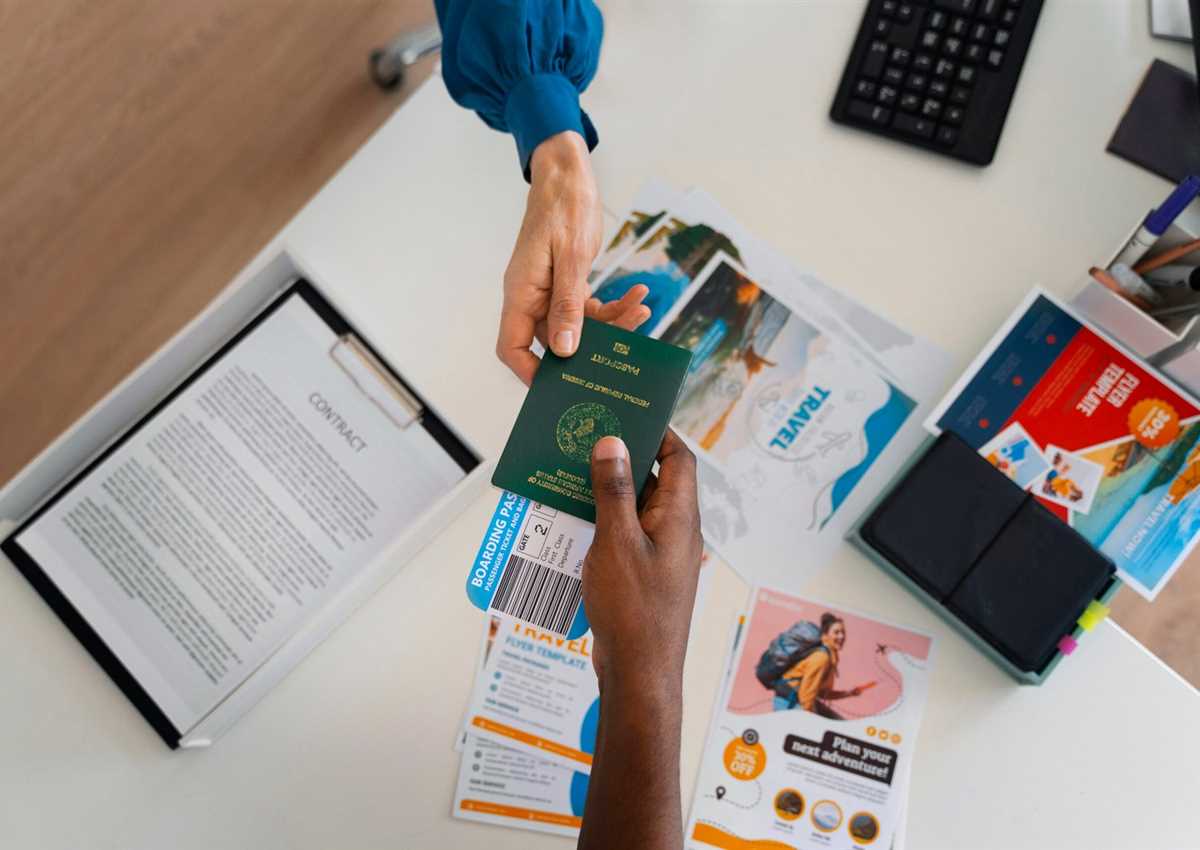
How New U.S. Tariffs Could Reshape International Travel in 2025
As international travelers begin planning their 2025 itineraries, new U.S. tariff policies are emerging as unexpected factors that could influence everything from flight prices to destination choices. These economic measures, while primarily targeting trade imbalances, may create ripple effects across the travel ecosystem.
Three Potential Impacts on Travelers
Explore tariff-related travel changes
- Airfare adjustments from potential aircraft component tariffs
- Hotel rate fluctuations tied to imported goods costs
- Shifting destination popularity based on trade relationships
Industry analysts suggest these measures could lead to:
“A rebalancing of travel patterns as costs shift, particularly affecting mid-range travelers while luxury and budget segments demonstrate more resilience.”
Regional Considerations
| Region | Tariff Factor | Travel Impact |
|---|---|---|
| Asia-Pacific | Electronics components | Increased tech conference costs |
| Europe | Luxury goods | Shift in shopping-focused tourism |
| Americas | Agricultural products | Food cost changes at destinations |
While the full implications remain uncertain, travel experts recommend that consumers monitor airline fuel surcharge announcements and consider flexible booking options as these policies take shape. The coming months will reveal whether these economic measures create temporary turbulence or lasting changes to global travel patterns.

Key Tariff Changes Affecting Travel and Tourism
China & Hong Kong: Suspended De Minimis and 10% Duty Expansion
The suspension of de minimis exemptions for shipments from China and Hong Kong means travelers may face new duty requirements for personal items purchased abroad. This change particularly affects:
| Item Category | Previous Duty | 2025 Duty |
|---|---|---|
| Electronics | Exempt below $800 | 10% minimum |
| Luxury Goods | Case-by-case | Flat 10% rate |
“This represents the most significant shift in personal import regulations since 2016,” notes a customs official in a recent policy briefing. Travelers should expect increased documentation requirements at border crossings.
Canada & Mexico: Paused Energy Tariffs and Cross-Border Implications
The temporary suspension of energy-related tariffs brings immediate relief to cross-border transportation sectors:
- Commercial trucking fuel costs projected to decrease 8-12%
- Border wait times expected to improve with reduced paperwork
- Tour bus operators anticipate lower operational costs
Regional Impact Analysis
Northern border states could see a 15-20% increase in Canadian leisure travelers during peak seasons, while southern border regions may experience renewed interest in cross-border shopping tourism.
The tariff pause creates breathing room for small businesses that rely on cross-border tourism – this could be a game-changer for border town economies.
– Maria Gonzalez, North American Trade Alliance
While the paused tariffs primarily target energy products, secondary effects include potential reductions in:
Hotel rates near major border crossings
Tour package prices for cross-border itineraries
Transportation surcharges for guided tours

Direct Impact on Traveler Spending and Behavior
Duty-Free Exemptions vs. Commercial-Grade Purchases
The 2025 tariff adjustments introduce stricter thresholds for duty-free exemptions, particularly affecting travelers bringing commercial quantities of goods. Personal allowances may drop to $800 per person, while bulk purchases could trigger customs scrutiny:
| Purchase Type | Pre-2025 | 2025 Projection |
|---|---|---|
| Duty-Free Limit | $1,600 | $800 |
| Alcohol Allowance | 1 liter tax-free | 0.75 liter tax-free |
“We’re seeing travelers reconsider souvenir strategies,” notes trade analyst Sarah Chen in her latest Global Mobility Report.
Hidden Costs for Luxury Goods and Alcohol Imports
Luxury items face staggering 25-30% tariffs under the new regulations, particularly affecting:
- Designer handbags exceeding $1,500 value
- Swiss watches and fine jewelry
- Premium wines and spirits
Alcohol Importation Details
The revised Customs and Border Protection guidelines now count each bottle as separate toward your limit, rather than per-liter calculations. This change particularly impacts collectors bringing multiple specialty spirits.
“Travelers purchasing €10,000 Rolexes or €5,000 Chanel bags should budget an extra 20-30% for tariffs,” advises financial planner Michael Rodriguez.
New commercial intent provisions allow customs officers to assess whether goods appear destined for resale, even when within personal allowance limits. This particularly affects:
- Multiple identical items
- Goods with original packaging
- Items accompanied by resale documentation
![]()
Operational Challenges for Travel Providers
As the U.S. introduces new tariffs, travel providers face significant operational challenges that could reshape international travel in 2025. These challenges are multifaceted, affecting various sectors of the travel industry.
Airlines and Cruise Lines: Fuel Surcharges and Supply Chain Delays
Airlines and cruise lines are particularly vulnerable to these changes. Fuel surcharges are likely to increase due to higher import costs, which could lead to higher ticket prices for consumers. Additionally, supply chain delays may occur as tariffs disrupt the flow of goods, impacting the availability of essential supplies and services.
| Industry Sector | Challenge | Potential Impact |
|---|---|---|
| Airlines | Fuel Surcharges | Increased Ticket Prices |
| Cruise Lines | Supply Chain Delays | Reduced Service Quality |
Hotel Procurement Costs and Localized Price Hikes
Hotels also face challenges due to increased procurement costs. Tariffs on imported goods can lead to higher prices for amenities and services, which may result in localized price hikes for guests. This could affect the competitiveness of hotels in international markets.
The impact of tariffs on the travel industry is complex and far-reaching. Understanding these challenges is crucial for travel providers to navigate the changing landscape effectively.
As the travel industry adapts to these changes, it’s essential to consider the broader implications for international travel. The combination of fuel surcharges, supply chain disruptions, and localized price hikes could lead to a more expensive and less accessible travel experience for consumers ?????.
Additional Considerations for Travel Providers
Travel providers should also consider diversifying their supply chains and exploring alternative sourcing options to mitigate the effects of tariffs. This proactive approach can help maintain service quality and competitiveness in a challenging market environment.

Geopolitical Considerations and Reciprocity Risks
As the world navigates the complexities of international trade and travel, geopolitical considerations play a crucial role in shaping the future of global mobility. The imposition of new U.S. tariffs could have far-reaching implications, not only for trade but also for international travel. One of the key areas of concern is the potential for reciprocity risks, where countries respond to tariffs with their own measures, affecting tourism and business travel alike.
EU’s Pending Alcohol Tariffs and Tourism Retaliation
The European Union’s pending alcohol tariffs are a prime example of how trade disputes can spill over into the tourism sector. If the EU imposes tariffs on U.S. alcohol imports, it could lead to retaliatory measures from the U.S., potentially affecting European tourism. This could result in higher costs for travelers and reduced demand for international travel, impacting local economies that rely heavily on tourism.
| Country | Potential Tariff Impact |
|---|---|
| United States | Reduced European tourism due to higher travel costs |
| European Union | Decreased U.S. alcohol imports, potential loss in tourism revenue |
Cross-Border Business Travel Documentation Requirements
Cross-border business travel is another area that could be significantly affected by new tariffs and geopolitical tensions. As countries impose stricter documentation requirements for business travelers, the process of conducting international business becomes more complex and time-consuming. This could lead to increased costs and reduced efficiency for companies operating globally.
Businesses must be prepared to adapt to changing regulatory environments and ensure that their employees are well-equipped with the necessary documentation to navigate these challenges.
Key Documentation for Business Travelers
Business travelers should ensure they have the following documents:
- Valid Passport
- Visa (if required)
- Business Invitation Letter
- Proof of Health Insurance
Embracing these changes with flexibility and understanding will be crucial for both travelers and businesses as they navigate the evolving landscape of international travel in 2025.

Adaptation Strategies for Industry Stakeholders
As new U.S. tariffs take effect, industry stakeholders must adapt quickly to maintain competitiveness in the international travel sector. This involves implementing innovative strategies that not only mitigate the impact of tariffs but also enhance the overall travel experience for consumers.
Real-Time Customs Duty Calculators for Travelers
One effective strategy is the integration of real-time customs duty calculators into travel booking platforms. These tools help travelers estimate and plan for additional costs associated with tariffs, making their travel planning more transparent and manageable. For instance, a calculator might look like this:
| Item | Value | Tariff Rate | Customs Duty |
|---|---|---|---|
| Luggage | $100 | 10% | $10 |
| Electronics | $500 | 15% | $75 |
By providing such tools, travel companies can enhance customer satisfaction and loyalty, as travelers appreciate the clarity and predictability these calculators offer.
Negotiating Bulk Procurement Agreements for Hospitality
Another crucial strategy for hospitality providers is negotiating bulk procurement agreements. These agreements can help reduce costs by leveraging economies of scale, thereby offsetting some of the financial burdens imposed by tariffs. For example, hotels can negotiate better prices for imported goods like linens, furniture, or food supplies by committing to larger orders.
By adopting these strategies, industry stakeholders can not only adapt to the changing tariff landscape but also position themselves for long-term success in the competitive international travel market.
Adaptability is key in today’s global economy. By embracing innovative solutions and strategic partnerships, businesses can thrive even in challenging environments.
As the travel industry continues to evolve, staying ahead of the curve with proactive strategies will be essential for maintaining market share and customer satisfaction.

Conclusion: Navigating the Future of International Travel
The introduction of new U.S. tariffs in 2025 could significantly impact international travel, affecting not only the tourism industry but also global economic dynamics. As these tariffs reshape travel patterns, it’s crucial for travelers, businesses, and governments to adapt and find innovative solutions to mitigate potential disruptions.
Key Considerations for stakeholders include:
| Aspect | Impact |
|---|---|
| Tourism Industry | Potential decline in international visitors due to increased costs. |
| Global Economy | Shifts in trade balances and potential economic slowdowns. |
| Travelers | Higher travel costs and reduced travel options. |
As the world adjusts to these changes, there is an opportunity for growth in alternative travel destinations and innovative travel services. By embracing these shifts, the travel industry can continue to thrive despite the challenges posed by new tariffs.
Ultimately, the future of international travel in 2025 will depend on how effectively stakeholders adapt to these new economic realities. By fostering collaboration and innovation, we can ensure that travel remains accessible and enjoyable for everyone.
As we navigate this new landscape, it’s essential to prioritize sustainability and resilience in the travel sector, ensuring that the benefits of international travel are preserved for generations to come.
